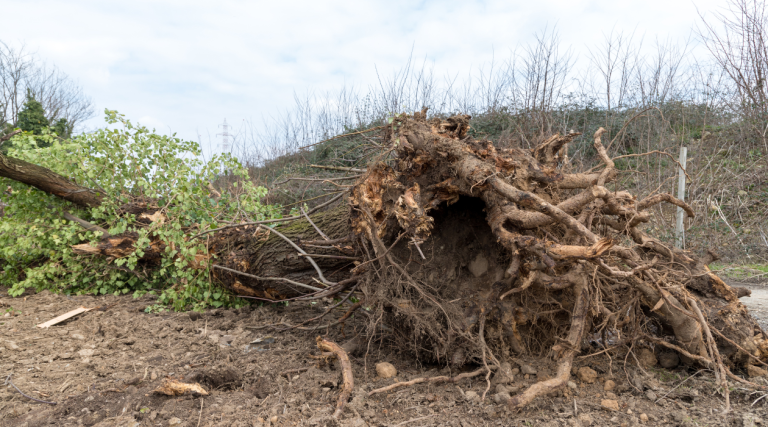Maine loggers call decision by USDA to offer no pandemic relief to timber harvesters unacceptable
AUGUSTA – The Professional Logging Contractors (PLC) of Maine is calling a decision by the U.S. Department of Agriculture (USDA) to deny the same aid U.S. farmers are receiving through the Coronavirus Food Assistance Program (CFAP) to timber harvesters and haulers unacceptable following the receipt of letters from USDA effectively announcing that decision by a bipartisan group of U.S. lawmakers across the nation last week.
On Sept. 18, President Donald Trump and USDA Secretary of Agriculture Sonny Perdue announced the launch of the nation’s second agriculture pandemic relief package, Coronavirus Food Assistance Program 2 (CFAP2). The new $14 billion package added tobacco, hemp and Christmas Trees to the list of eligible crops, yet as with the first CFAP package, timber was left off the list. More than $7 billion in payments to farmers were approved in the first month of CFAP2 alone. Zero dollars went to loggers.
In response, a bipartisan group of legislators from across the U.S. including Maine Senators Susan Collins and Angus King, and Maine Representatives Jared Golden and Chellie Pingree, fired off letters to Perdue seeking a change in CFAP that would allow loggers to qualify for aid.
On Nov. 18, Perdue replied to this urgent request with form letters simply stating forest products are not covered under CFAP2 and giving no indication that they ever will be. The application period for CFAP2 funding expires Dec. 11.
“This lack of action by the USDA in the face of an unprecedented crisis for the U.S. logging industry is unacceptable,” PLC Executive Director Dana Doran said. “We’ve seen billions of dollars in aid go to U.S. farmers and fishermen since the COVID-19 pandemic began, but no direct aid for the logging industry. It appears that the Trump administration and the USDA are perfectly willing to use loggers and log trucks in photo ops and campaign events while doing nothing to directly help the industry survive the economic effects of this pandemic.”
The U.S. farming industry has received billions in federal aid to offset losses from the U.S.-China Trade War since 2018, and this year received billions more to offset losses from the COVID-19 pandemic. Total federal aid to U.S. farmers in 2020 is already at record levels, reaching $40 billion by October. Though loggers are “farmers of the forest” harvesting a renewable crop, they have received no direct pandemic aid.
U.S. fishermen have received less federal aid than farmers for trade war and pandemic losses, but still millions more than loggers and timber haulers.
The U.S. Department of Agriculture announced Sept. 9 the creation of a $527 million seafood trade relief program that will pay licensed fishermen a species-specific amount for every pound of fish landed in 2019 to absorb sales declines and increased marketing costs caused by China’s retaliatory tariffs. The individual payout is capped at $250,000. If every pound qualified, Maine lobstermen alone could receive more than $50 million in seafood trade relief.
Meanwhile, proposed bipartisan logger relief bills endorsed by Maine’s full Congressional delegation and representatives of other logging dependent states have not been acted on. Pleas from state logging associations have so far yielded no aid.
“We remain hopeful but increasingly skeptical that Maine timber harvesters and haulers who are suffering in the current crisis will not be forgotten and that federal aid like that provided to farmers and fishermen will reach our industry before it is too late to save the family businesses and communities that depend on it,” Doran said. “Maine’s heritage industries of fishing, farming, and logging need support in this time of crisis, yet loggers have been left to fend for themselves as farmers and fishermen receive help. This must change if the industry is to survive.”
An analysis generated for the American Loggers Council (ALC) showed that this year’s decrease in raw wood material consumption over the first six months of 2020 alone had led to a $1.83 billion reduction in the value of logger/trucker-delivered wood. The report, conducted by the analytics firm Forests2Market, found that raw wood material consumption between January-July 2020 was 6.7% less than the same period in 2019 – dropping 21.4 million tons of material. This resulted in a 13% reduction ($1.83 billion) in value of the delivered wood.
Most Maine logging contractors who are members of the PLC are reporting a 30-40 percent reduction in wood markets. Many are suffering severe revenue losses, layoffs, loss of clients, reduced productivity, and inability to plan for the future. The loss of the Pixelle Specialty Solutions pulp mill in Jay to an explosion has amplified the issues for the state’s industry.
Maine’s story is very consistent with other timber producing states across the country where mills have reduced their consumption of wood during the COVID-19 pandemic as a result of reduced or lost markets. Combined with high operating costs and low returns on investments, this collapse in wood demand threatens the survival of logging and log hauling businesses and means that harvesting capacity throughout the United States could be deeply reduced by this crisis.
“Time is running out for Maine loggers and truckers,” Doran said. “We appeal to our leaders in Washington D.C. to act before it is too late and provide aid to the logging industry while there is still a viable industry to save.”
Maine’s loggers are a vital part of the state’s forest products sector, which is worth an estimated $7.7 billion annually.
The logging industry contributed an estimated $619 million to the Maine economy in 2017, supported more than 9,000 jobs directly or indirectly, generated $342 million in labor income, and pumped an estimated $25 million into state and local tax coffers.

